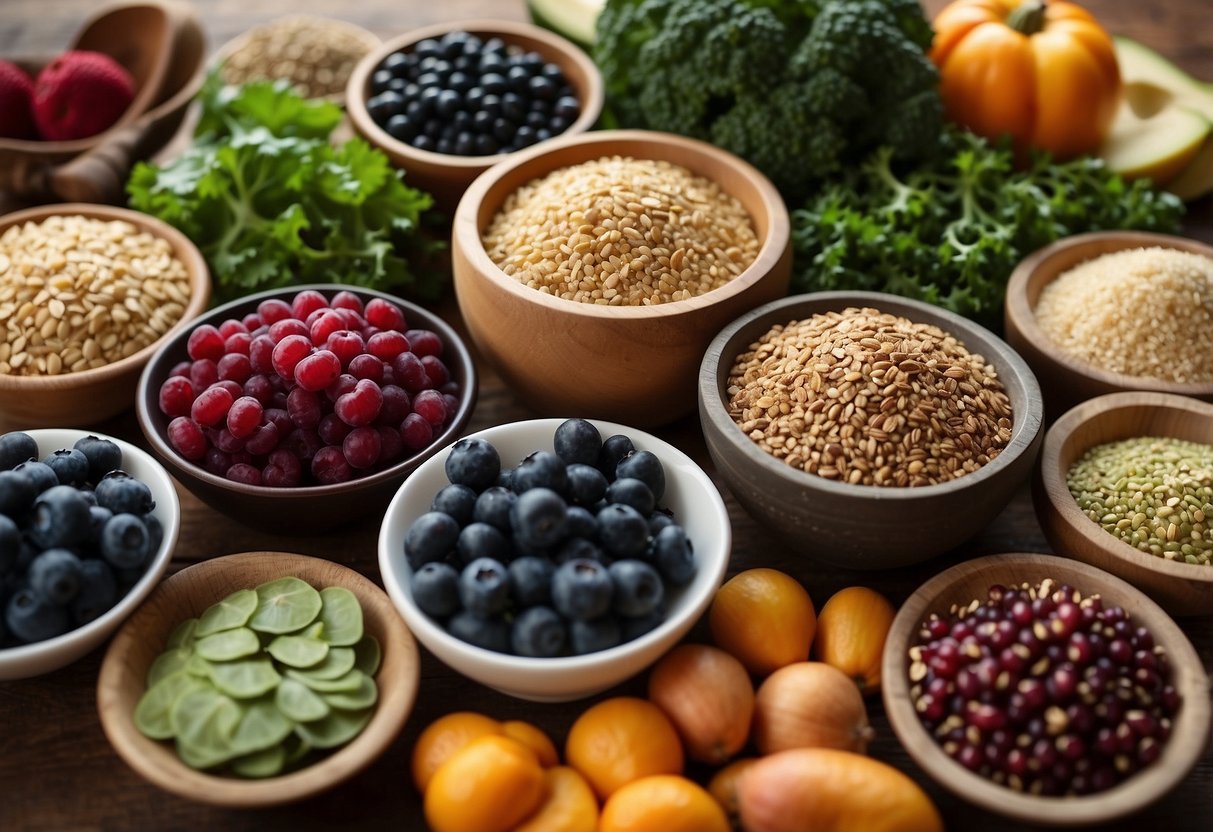
How To Incorporate Superfoods Into Your Diet
Incorporating superfoods into your daily routine can be seamless and enjoyable when you know how to create simple recipes and plan your meals effectively. Here’s how you can start.
Simple Recipes and Snacks
Adding superfoods to your diet doesn’t have to be complicated. Start with easy recipes that require minimal prep time. For breakfast, a smoothie with spinach, chia seeds, and berries offers a nutrient-packed start to your day. Greek yogurt with a sprinkle of flaxseeds and honey makes for a quick snack.
Another idea is to add avocado to your salads or toast. Avocados are rich in healthy fats and vitamins. Overnight oats made with almond milk and topped with fruits like blueberries or bananas are not only simple to prepare but also incredibly nutritious.
For lunch or dinner, consider a quinoa and vegetable stir-fry. Quinoa is a versatile grain that’s high in protein and pairs well with various vegetables like bell peppers, broccoli, and carrots. Lastly, snack on nuts like almonds or walnuts, which provide essential fatty acids and protein.
Meal Planning Tips
Planning your meals can help you consistently include superfoods in your diet. Start by identifying superfoods you enjoy and make a list. Schedule a day to prep ingredients. For instance, wash and chop vegetables, cook large batches of quinoa, and store them in the fridge for easy access.
Create a weekly menu that includes a balance of superfoods at each meal. Breakfast could feature a smoothie or overnight oats, while lunch might be a hearty salad with greens and nuts. Dinner can be a mixture of grains, lean proteins, and vegetables.
Always have superfoods like nuts, seeds, and fruits in stock for quick snacks. Keep your pantry and fridge organized, so that healthy choices are readily available. By dedicating some time to planning and preparation, incorporating superfoods into your diet becomes less daunting and more habitual.
Potential Health Benefits
Incorporating superfoods into your diet can lead to enhanced immune function and improved energy levels. These benefits are derived from the vitamins, minerals, and other essential nutrients found in superfoods.
Enhanced Immune Function
Certain superfoods are rich in antioxidants, vitamins, and minerals that support immune health. For example, berries like blueberries and strawberries contain high levels of vitamin C, which boosts white blood cell production. Additionally, leafy greens such as spinach and kale provide essential vitamins A and E, which are crucial for maintaining a strong immune system.
Garlic and ginger are notable for their anti-inflammatory and antimicrobial properties. These can help the body fight off infections and reduce inflammation. Consuming a diet rich in such superfoods can lead to a more resilient immune response.
Improved Energy Levels
Many superfoods are excellent sources of sustained energy. Quinoa and oats are complex carbohydrates that provide a steady release of energy throughout the day. These foods help maintain stable blood sugar levels, preventing the energy dips often experienced after consuming refined sugars.
Nuts and seeds, such as almonds and chia seeds, are packed with protein and healthy fats. These nutrients play a pivotal role in energy production and muscle repair, supporting overall vitality. Furthermore, superfoods like green tea contain natural caffeine and L-theanine, which can enhance mental alertness and physical energy without leading to a sharp crash.



